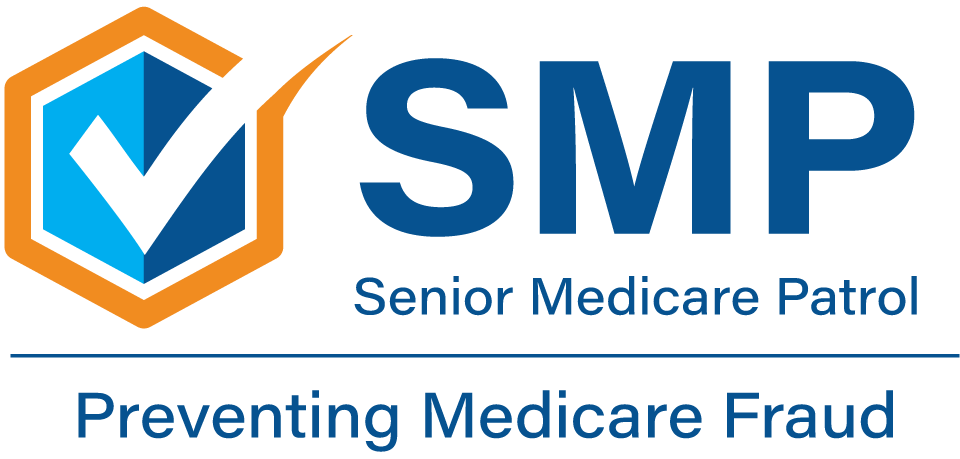- Home
- For Older Adults, Families & Caregivers
- Connect with Support
- Health & Safety
- Adult Protective ServicesAbuse Investigation
- Emergency PreparednessPlanning Resources
- COVID-19 Vaccines, Boosters and ResourcesStay Healthy
- Illinois Pathways to HealthManage Chronic Conditions and Prevent Falls
- Take Charge of Your HealthImprove Health with Interactive Workshops
- Falls Prevention ProgramsGet Fit and Prevent Falls
- Long-Term Care Ombudsman ProgramRights Advocacy
- Senior Medicare Patrol (SMP)Prevent Fraud
- Quality of Life
- Find One Near YouMeal Programs
- Caring Together, Living Better (CTLB)African-American/Latinx Caregiver Support
- H.O.P.E. by AgeOptionsLiving Independently
- Library ProgramCommunity Engagement
- Thrive with PrideLGBT+ Initiatives
- Memory CafésActivities for People Living with Dementia
- TCARE (Tailored Caregiver Assessment and Referral)Caregiver Stress Reduction
- UniperVirtual Senior Center
- Social Isolation ProgramsCommunity Connection
- TrualtaCaregiver eLearning and Online Community
- Trualta
- For Professionals & Partner Agencies
- How Can We Help?
Adult Protective Services Neglect and Financial Exploitation

What is Elder Financial Exploitation?
The Older Americans Act defines elder financial exploitation as “the fraudulent or otherwise illegal, unauthorized or improper act or process of an individual that uses the resources of an older individual for monetary or personal benefit, profit, or gain, or that results in depriving an older individual of rightful access to, or use of, benefits, resources, belongings, or assets.” According to an analysis conducted by the U.S. Consumer Financial Protection Bureau, those over age 70 lost an average of $41,800 to elder financial exploitation between 2013 and 2017, which is a serious cause for concern. Therefore, older adults having awareness to common scams and fraud, as well as how to report, is imperative. Per the Illinois Adult Protective Services (APS) Act, financial exploitation means the misuse of or withholding of an eligible adult’s resources to the disadvantage of the eligible adult and/or the profit or advantage of another person. Although the APS program does not have jurisdiction to investigate allegations of financial exploitation perpetrated by persons who are unknown to adults who are eligible for services*, such as overseas scammers, there are ways to report and a vast number of resources available to adults who fall victim to scams and fraud. *Adults eligible for services in the APS Program include older adults 60 years of age or older and adults 18-59-years-old with a disability.
Common Scams Targeting Older Adults and Ways to Report
Listed below are common scams that target older adults, as well as descriptions of each scam and ways individuals can report. It’s important to note that this list is not inclusive of all the scams that target older adults. Any scam, fraud or exploitation of an adult aged 60 years and older can be reported to the National Elder Fraud Hotline at (833) 372-8311 who can triage the call and provide guidance and warm handoffs to the entities for which the fraud should be reported.
Tech Support Scams
Scammers use pop-up messages, fake websites, or phone calls to trick you into thinking your computer has a serious problem. They obtain your money by having you pay for fake technical support or steal your personal/ financial information by gaining access to your computer.
- Victims of tech support scams should file a report with the Federal Bureau of Investigation (FBI) Internet Crime Complaint Center (ic3) and the Federal Trade Commission.
Telephone Scams
Telephone scammers try to steal your money or personal information. Scams may come through phone calls from real people, robocalls, or text messages. Callers often make false promises, such as opportunities to buy products, invest your money, or receive free product trials. They may also offer you money through free grants and lotteries. Some scammers may call with threats of jail or lawsuits if you don’t pay them.
- Although they can’t investigate individual cases, it’s important to report telephone scams to federal agencies given your report can help them collect evidence for lawsuits against scammers. To report telephone scams, you can report online to the Federal Trade Commission or by calling (877) 382-4357. To report all robocalls and unwanted telemarking calls, report to the Do Not Call Registry. To report caller ID spoofing, you can report online to the Federal Communications Commission or by phone at (888) 225-5322.
Identity Theft
Identity theft occurs when someone uses your Social Security number or other personal information to open new accounts, make purchases, or get a tax refund. You may not know you’re a victim of ID theft immediately, but you could be a victim if, for example, you receive bills for items you didn’t purchase, receive debt collection calls for accounts you didn’t open or receive denials for loan applications. ID theft can damage an individual’s credit status and can cost you valuable time and money.
- In order to recover from identity theft, most people need to take several steps, which include: 1) calling the companies where you know fraud occurred, 2) placing a fraud alert on your credit reports and obtaining copies of your report, 3) reporting identity theft to the Federal Trade Commission (FTC) and 4) filing a report with your local police department. If you or someone you know needs assistance to report identity theft and to develop a recovery plan, visit gov.
Romance Scams
Romance scams occur when scammers create fake profiles on dating sites and social media, often using stolen photos, with the goal of building trust and gaining the victims affection in order to obtain your money or personal/financial information. If someone you meet online requests your bank account information to deposit money, that person is most likely using your account to commit other theft and fraud schemes.
- If you suspect an online relationship is a scam, stop all contact immediately. If you are the victim of a romance scam, file a complaint with the Federal Bureau of Investigation (FBI) Internet Crime Complaint Center (ic3).
Medical Identity Theft
Medical ID theft occurs when someone steals personal information, such as your name and Medicare number, and uses the information to get medical treatment, prescription drugs, surgery, and/or services and then bills Medicare for it.
- If you are a victim of Medical ID theft or any form of health care fraud, contact the Illinois Senior Medicare Patrol (SMP) who will be ready to provide you with the information you need to protect yourself from Medicare errors, fraud and abuse, detect potential errors, and report your concerns. If you are a victim of Medical ID theft and you live outside of Illinois, visit org to locate your state SMP.
Charity Scams
According to the Federal Trade Commission (FTC), charities and fundraisers use the phone, face-to-face contact, email, the internet, and mobile devices to solicit and obtain donations. Scammers use these same methods to take advantage of your goodwill. Regardless of how the scammer reaches you, be cautious of any charity or fundraiser that, for example, refuses to provide detailed information about its identity, mission, costs and how the donation will be used.
- If you think you’ve been a victim of a charity scam, file a complaint with the Federal Trade Commission (FTC). By doing so, your complaint can help detect patterns of wrong-doing and lead to investigations as well as prosecutions.
If you are in need of additional assistance to address a scam situation, the Consumer Protection Division of the Illinois Attorney General’s office may be able to provide assistance. Although attorneys from the Attorney General’s office cannot represent an individual in a lawsuit, their limited mediation program can aid in resolving disputes or complaints filed by individual consumers. To seek assistance from the Attorney General’s office, complete the Consumer Complaint On-Line Submission Form.
Money Smart for Older Adults Program
The Consumer Financial Protection Bureau (CFPB) and the Federal Deposit Insurance Corporation (FDIC) developed the Money Smart for Older Adults program to raise awareness among older adults and their caregivers on how to prevent elder financial exploitation and to encourage advance planning and informed decision-making. By participating in this educational program, participants will be better able to: 1) recognize and reduce the risk of elder financial exploitation; 2) guard against identity theft; 3) plan for possible loss of their ability to manage their finances; 4) prepare financially for disasters; and 5) find other helpful resources for managing their money and reporting financial exploitation. If you are interested in the Money Smart for Older Adults program and would like the program presented to your organizations participants, please contact Jamie Farrell, Aging and Disability Rights Coordinator at Jamie.farrell@ageoptions.org.
Resources
- Federal Trade Commission (FTC) Complaint Online Reporting Form
- National Elder Fraud Hotline (sponsored by the US Dept. Justice Office for Victims of Crime)
- Better Business Bureau Scam Tracker
- AARP Scam Tracking Map
- National Do Not Call Registry
- IRS Identity Protection Specialized Unit
- Identity Theft Resource Center
- Cyber Crime Support Center
- National Cyber Security Alliance
- United States Senate Special Committee on Aging Fraud Book 2020
- Consumer Financial Protection Bureau Consumer Tools
